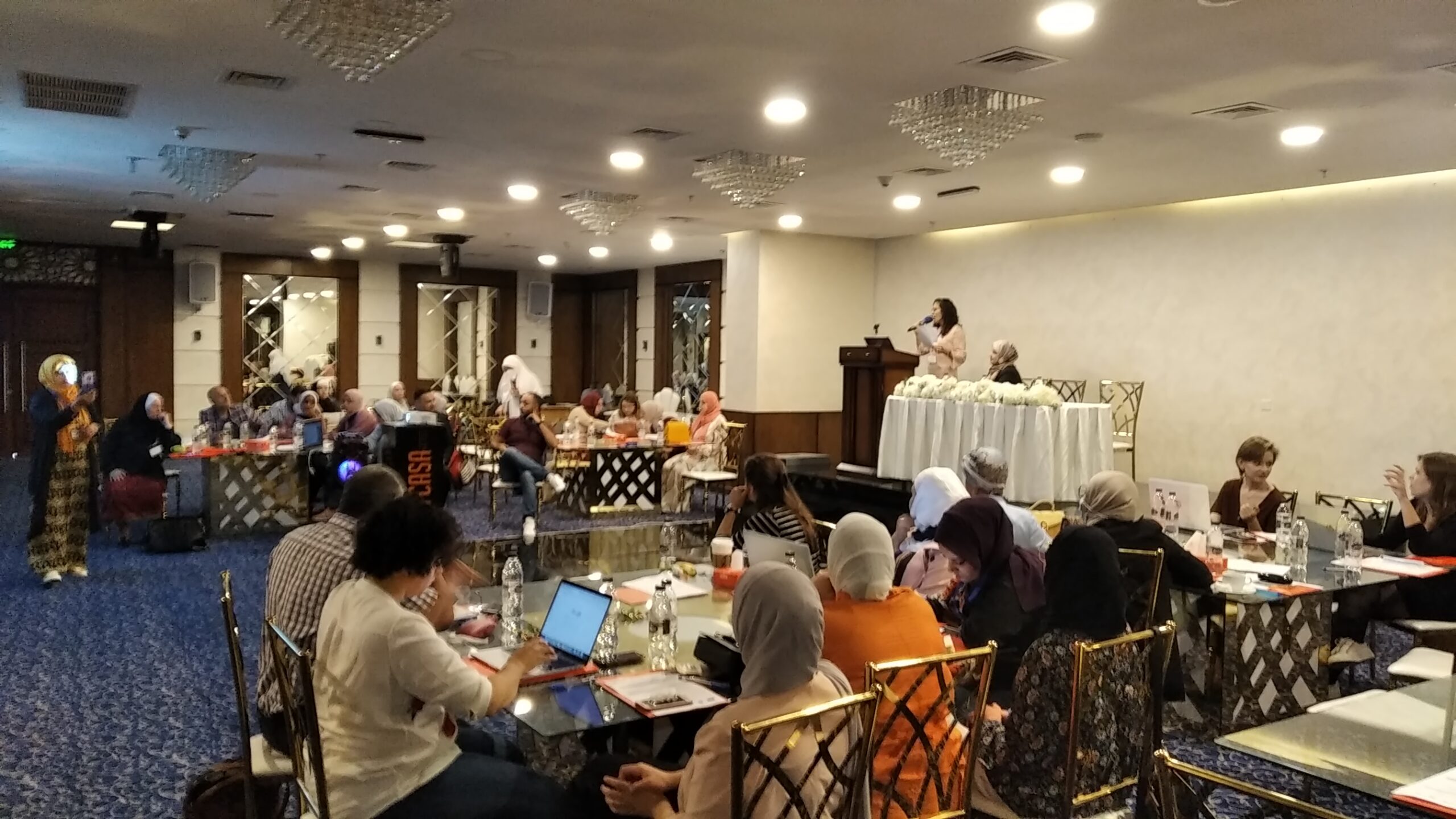The Invisible Forewomen Conference full report by the organisers of the conference Uri Mena
The Invisible Forewomen Conference was held from July 29-31, 2021 in Amman, Jordan. The conference was organized in a hybrid style, with both an in-person and virtual audience. It brought together about 50 people in-person and 20 virtual attendees via Zoom.
The conference was part of the Invisible ForeWomen project led by Udhetim i Lire – Liberi di Viaggiare (UiL-LdV), Albania, in cooperation with the United Religions Initiative in the Middle East & North Africa (URI MENA), TEKMED, Turkey, Have A Dream, Egypt and DRPDNM, Slovenia. It was generously funded by Anna Lindh Foundation and co-funded by the European Union.
The aim of the conference was to raise awareness about young marginalized women’s needs for sociocultural and economic empowerment. Speakers provided innovative ideas about how to boost their participation in social, economic and public life. Participants discussed how to combate the contextual factors that increase young women’s susceptibility to marginalization, violence and discrimination. They suggested many strategies to overcome obstacles that prevent young women with less opprtunities from fully contributing to sustainable development. Conference participants were a mix of leaders of women-led organizations, experts in relevant subjects, and marginalized women. They were from 13 European and South Mediterranean countries. Because young marginalized women’s struggles and rights so often go unnoticed, the conference provided them with the space to tell their stories and addressed existing efforts that can provide them with the tools to become leaders and entrepreneurs in various fields. We invited Anna Lindh Foundation members from across Europe and the South Mediterranean to attend the conference.
Day One
His Excellency Dr. Fares Braizat, chairperson of NAMA – Strategic Intelligence Solutions and former Minister of Youth from 2019-2020, delivered a remarkable opening speech for the conference. He provided significant insights on gender inequality statistics and how civil society organizations are combating such inequalities. Mamoun Khreisat, URI Regional Coordinator, then introduced the conference highlighting its aims and stressing the importance of having multiple women from marginalized communities among the audience. Afterwards, Miranda Mansaku, Executive Director of Udhetim i Lire and leader of the Invisible Forewomen project, provided an overview on the project and highlighted its major milestones:
(1) Researching and analyzing marginalized women’s needs for sociocultural and economic empowerment in the five project countries, using primary and secondary data sources
(2) Developing a toolkit on “Marginalized Young Women Empowerment” based on the research results
(3) Creating a Training of Trainers (TOT), based on the toolkit, for 25 marginalized women from the project countries
(4) Trainings for over 125 marginalized women, led by those who attended the TOT, in five project countries
(5) The Invisible Forewomen Conference
The project’s partners extended their gratitude to the Anna Lindh Foundation and the European Union for their significant support for this project.
After the official opening, participants played a “get to know each other” game where everyone had to interact with others and ask a host of questions in order to fill out a bingo sheet.
Following the coffee break, the first plenary session focused on the economic empowerment of young marginalized women. Keynote speakers were:
– Eng. Iqbal Hamad, Director of the Women Empowerment and Gender Program, The Jordanian Hashemite Fund for Human Development (JOHUD) – Jordan
– Dr. Anji Ben Hamed Ep Amara, Assistant Professor of Entrepreneurship, Startups Coach, Mentor, and Consultant. Higher College of Technology, UAE
– Mr. Ali Lafi, an expert in African affairs and social development – Tunisia
The second plenary session highlighted models of sociocultural empowerment for marginalized women. Keynote speakers were:
– Dr. Ayat Nashwan, Associate Professor in Social Work, Yarmouk University – Jordan. She spoke about early marriage and displacement
– Ms. Shorouq Shatnawi, Shoura for Building National Consensus – Jordan. She spoke about shared leadership between men and women
– Ms. Esmat Elsayed, Erasmus Students Network International, Belguim. She spoke about gender equality
– Eng. Shima’ Bahzad, Minority Rights Activists – Kurdistan of Iraq. She spoke about the rights of women from religious minorities
– Ms. Nedra Ben Aziza, Journalist and Women’s Rights activist – Tunisia. She spoke about Maghreb women’s political participation
The third plenary session addressed major challenges that young women from marginalized communities face. Keynote speakers were:
– Dr. Ahmed Abdelhamid Mohsen, The Association of the Egyptian Female Lawyers – Egypt
– Nedaa Al Showaikh, lawyer for the Jordanian National Forum for Women – Jordan

